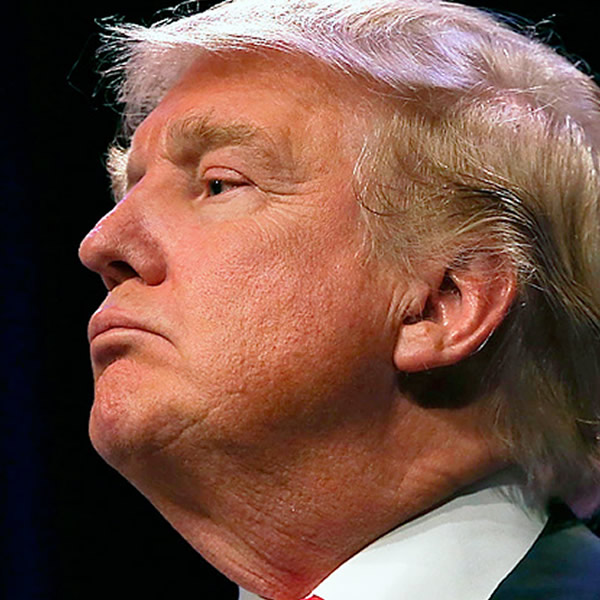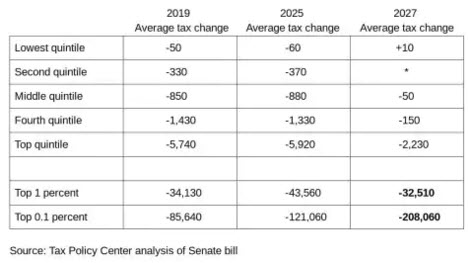Will the Rule of Law Survive Donald Trump?
Within 24 hours came the guilty plea of Michael Flynn, President Trump’s 
momentary National Security Adviser, and the disclosure by the New York Times that over thesummer Trump had repeatedly contacted Senate Republicans urging that they halt the intelligence committee’s probe into Russia’s election interference.
Flynn’s sole charge of lying to the FBI disregards his involvement in a portfolio of questionable activities most notably with the Turkish government, suggesting that in return he has much to tell the special counsel about Russian connections during the Trump campaign and transition. The president’s attempt to persuade the chairman of the Senate Intelligence Committee, Richard Burr, to end their investigation and then his going around Burr to other senators, says that Trump is greatly worried about what is coming to light.
The question is, what is he likely to do? This is a president like no other, including Richard Nixon, in his dismissal of legal norms. As the dragnet draws tighter, will Trump take the long expected and inflammatory step of firing Special Counsel Robert Mueller? A look at his past conduct and what it reveals about his attitude toward the law says he will.
Mueller is clearly developing an obstruction of justice case against the president, whose lack of self-restraint in attempting to get Congress to shut down an investigation that may involve himself, compounds the case for obstruction. He made the calls without staff present, said a West Wing official to the Times, ducking those who would have strongly advised against it. His actions were analogous to a defendant in a trial contacting the jurors.
Back in February, FBI Director James Comey said that Trump had tried to end the bureau’s investigation of Flynn, urging, “I hope you can see your way clear to letting this go, to letting Flynn go”, in notes taken by Comey. Said by the man who decides whether or not you keep your job, that would be viewed by anyone as an implicit threat, and it was the genesis of the obstruction question. “I took it as this is what he wants me to do”, Comey testified before Congress. Trump tried to extract a personal loyalty pledge from Comey, and when accommodation of neither request was forthcoming, fired him on the risible pretext of his mishandling of the Hillary Clinton e-mail probe, as if Trump saw fit to punish him for harming Clinton’s chances of winning.
Trump is irrepressible, so out came the truth in an interview with NBC News anchor Lester Holt at the White House, when he blurted out about the firing,
“In fact, when I decided to just do it, I said to myself, I said, you know, this Russia thing with Trump and Russia is a made up story…”.
If Robert Mueller is building a case of obstruction, high on his evidence list is this confession, that Trump fired Comey expecting to stop the FBI’s Russian collusion investigation.
He fired Assistant Attorney General Sally Yates the moment she refused to enforce his ban against citizens of Muslim nations entering this country. It was his prerogative to do so, except what he would call insubordination was Yates following what she knew to be the law: More than 50 years ago, Congress outlawed discrimination against immigrants based on national origin. She had objected to Trump’s invented law, as would the 9th circuit court, which halted that first version of the ban.
his idea of law
Trump persistently encouraged violence at his campaign rallies. “If you see somebody ready to throw a tomato, knock the crap out of him, would you? Seriously”, he said at Cedar Rapids, Iowa. “I promise you, I will pay for the legal fees”. In Birmingham, Alabama, responding to the crowd: “Roughed up? I don’t know. Maybe he should have been roughed up”. In Las Vegas, “I love the old days. You know what they used to do to guys like this? They’d be carried out on a stretcher…I’d like to punch him in the face.”
Speaking at a police event on Long Island (NY), he encouraged them to get rough with suspects, not to be “too nice”, “like when you guys put somebody in the car and you’re protecting their head… and they’ve just killed somebody…I said, you can take the hand away, okay?”. Police officials across the U.S. spoke out against him.
He notoriously defended the white supremacists and Nazi protesters in Charlottesville, putting them on an equal plane with those who protested against them, calling them “very fine people, on both sides”. He had nothing to say when Turkish President Recep Tayyip Erdogan’s security goons beat up American protesters right in our nation’s capital. President Rodrigo Duterte, whose death squads have murdered thousands of drug law offenders, is “doing an unbelievable job on the drug problem”.
what constitution?
He shows indifference to laws and the Constitution. To then Fox News Host Bill O’Reilly he argued that immigrants in this country illegally should not be entitled to due process. That translates to just lock ’em up, indefinite detention. He also said that children born in the U.S. to illegal immigrant parents are not citizens, the first sentence of the 14th Amendment notwithstanding.
He stepped into the case against Joe Arpaio, the former sheriff of an Arizona county, pardoning him even before sentencing in what was universally called abuse of the power granted the president by the Constitution. He had earlier asked Attorney General Jeff Sessions if the charges against Arapaio could simply be dropped. Arpaio had been found guilty of criminal contempt for defying a court order to stop detaining immigrants solely on the suspicion that they might be in the country illegally. Trump’s first use of his pardoning power was not to redress some grievous miscarry, but to neuter a federal court’s exercise of its only remaining enforcing power when it is disobeyed.
Trump would brush aside the Geneva Conventions and international law with apparent relish. He has said repeatedly he would return to the Bush administration’s betrayal of the nation’s principles when it descended into torture. Obama banned torture immediately on taking office, which meant for Trump yet another item to reverse in his mission to obliterate all accomplishment of the first black president. “Would I approve waterboarding? You bet your ass I would — in a heartbeat”, he said in November 2015. “Torture works”, he said at a South Carolina campaign event in early 2016. The captured suspect accused of the Bataclan theater attack in Paris in November 2015 would have talked “a lot faster with the [sic] torture”. In one of the GOP presidential debates he said, “I’d bring back a hell of a lot worse than waterboarding”.
Trump was, and is, irate at Attorney General Jeff Sessions for following ethics officials’ and the Justice Department’s rules recommending that Sessions recuse himself from matters concerning the Russian investigation, owing to his conflict of having met with Russians himself during the campaign. Trump cared not for this judicious deference to the law. For him it was betrayal of his plan to have the Justice Department under his thumb by installing a campaign loyalist.
He had made an exception for himself in not divesting even those assets that are making money for him while president. Seeking favor, lobbyists, business executives, and delegations from other countries stay at his hotel in D.C. and eat at its restaurant, and then follow the president south to pay the $200,000 initiation fee to join his Mar-a-Lago club in Palm Beach. Accepting something of value from a foreign state runs afoul of the emolument clause of the Constitution but he shows indifference to respecting the Constitution.
When NBC News reported that Trump, looking at a chart of America’s huge Cold War nuclear arsenal, announced to his startled national security advisers that he wanted a 10-fold increase in nuclear warheads, the president threatened to have the network’s broadcast license revoked (it is the local stations that have the licenses, not the network). He proposed “perhaps loss of citizenship or year in jail” for anyone who burns the American flag, an action protected as free speech in an opinion by no less than Antonin Scalia.
As to the other part of that 1st Amendment on which freedom of religion is based, he would “certainly implement” a national Muslim registry. “Absolutely”.
inimicus curiae
He has repeatedly denigrated the judiciary. He had learned the wiles of real estate, where the law is something to work around. He was involved in a discrimination dispute at age 27 when Trump Management Co., run by his father, was sued in 1973 by the Justice Department’s Civil Rights Division for schemes to prevent renting its housing units to black families, resulting in a consent decree prohibiting such conduct. The 27-year-old Donald called the charges “such outrageous lies”. He would then subvert multiple laws by hiring 200 undocumented Polish workers, paying them $4 an hour, if they were paid at all, in 12-hour shifts to build Trump Tower in New York.
Days after his inauguration, he tore into the judge who had issued a temporary injunction blocking Trump’s Muslim country travel ban. “The opinion of this so-called judge, which essentially takes law-enforcement away from our country, is ridiculous and will be overturned!,” Trump wrote.
Because of his plan to build a wall along the Mexican border, he claimed he couldn’t get a fair trial from the Mexican judge in San Diego ruling on the class action fraud suit against Trump University — a judge of Mexican lineage who in fact was born in Indiana.
He wanted to send to Guantánamo the terrorist who killed eight people with a truck on a bike path in New York City, expressing impatience with the U.S. justice system taking too long. The criminal justice system is “a joke”, and “a laughing stock”, he tweeted. No one is sympathetic to terrorists, but Trump would immediately abort due process in favor of indefinite detention without a trial. He backed off only when he apparently learned for the first time that military tribunals at Gitmo have failed utterly, whereas the U.S. criminal justice system has successfully convicted the perpetrators of 627 terrorism cases from 9/11 to the end of 2015. But with his chronic lack of restraint and understanding of legal protocol, especially improper for a president to interfere, he tweeted “SHOULD GET DEATH PENALTY”, automatically handing the defense the claim that their client cannot get a fair trial.
Trump said that perhaps his biggest disappointment on becoming president was learning that he did not control the Justice Department. On a radio program he said,
“You know, the saddest thing is that because I’m the president of the United States, I am not supposed to be involved with the Justice Department. I am not supposed to be involved with the F.B.I. I’m not supposed to be doing the kind of things that I would love to be doing.. And I am very frustrated by it.
Clearly he had major plans to use the department to his ends.
One stop along the way would have been to simply order Justice and its FBI to go after Hillary Clinton. Beginning at the Republican National Convention, where Gen. Mike Flynn led the chant, “Lock Her Up” became a campaign motif. In one of the debates with Clinton, Trump said he was “going to instruct my attorney general to get a special prosecutor to look into your situation”. Trump has repeatedly tweeted his belief that Clinton should be prosecuted. He has repeatedly harassed Sessions, tweeting…
“So why aren’t the Committees and investigators, and of course our beleaguered A.G., looking into Crooked Hillarys crimes & Russia relations?”
…and most recently:
“Everybody is asking why the Justice Department (and FBI) isn’t looking into all of the dishonesty going on with Crooked Hillary & the Dems.”
The pressure has worked: Trump hasn’t directly commanded law enforcement agencies against his political rival, but in mid-November Sessions feared enough for his job to instruct senior prosecutors to examine whether there is cause enough in the accusations against Ms. Clinton to to appoint a special prosecutor. “The American public deserves it”, Trump has tweeted. We deserve to become a third world country where election winners jail the losers.
Or a country where a president fires a special counsel investigating him and his administration. With Sessions recused, it is Assistant Attorney General Rod Rosenstein who has the power to dismiss Robert Mueller and put an end to the probe. Rosenstein has so far signaled that he wouldn’t, so Trump would first fire Rosenstein and — as did Nixon in the “Saturday Night Massacre” when he first fired Archibald Cox and then Eliot Richardson — then fire however many refusing successors it takes to reach the equivalent of an obedient Robert Bork.
Would impeachment ensue? Would the Republican-controlled House pass articles of impeachment? In the Senate, are there 18 Republicans who would join presumably all the Democrats to reach the two-thirds majority needed to remove the president?
We are reminded that Republicans stuck with Nixon to the end. That could be the outcome with Trump — an authoritarian surviving impeachment and a severely damaged presidency that might never fully recover.




